When it comes to selecting the perfect worktop for your kitchen, two popular choices that often come to mind are Quartz and Granite.
Both of these materials offer exceptional durability, aesthetics, and functionality, making them top contenders in the world of kitchen worktops.
However, each material has its unique characteristics, advantages, and disadvantages. In this guide, we will provide an in-depth comparison between Quartz and Granite worktops, helping you make an informed decision for your kitchen project.
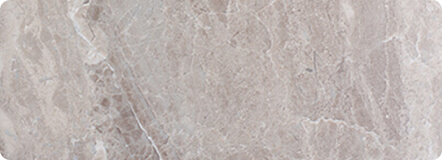
Quartz worktops are engineered stone surfaces made primarily from crushed natural quartz crystals mixed with resins, pigments, and other materials.
The exact composition can vary among manufacturers, but typically, quartz countertops contain around 90-95% crushed quartz and 5-10% resin. This engineered nature allows for greater consistency in colour and pattern.
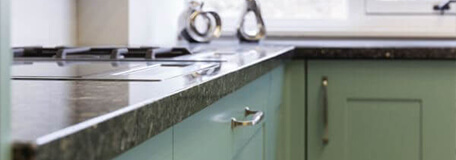
Granite worktops are entirely natural stone surfaces. Granite is an igneous rock formed from molten magma, making it a 100% natural material.
It contains a mixture of minerals such as feldspar, quartz, and mica. The unique composition of minerals gives each granite slab its distinctive appearance.
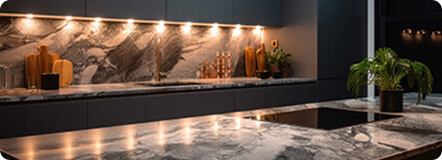
Wide Variety: Quartz worktops offer a vast array of colour and pattern options, ranging from solid colours to mimicking natural stones like marble and granite.
Consistency: Engineered quartz provides a more uniform appearance, making it easier to match and install multiple slabs seamlessly.
Control Over Aesthetics: Manufacturers can control the final look, allowing for customised designs and patterns.
Resin Filling: Some people may not like the appearance of resin filling on quartz surfaces, which can be more noticeable in certain lighting conditions.
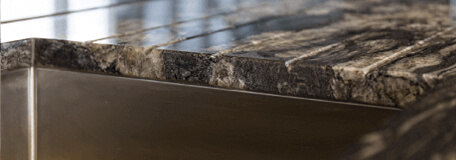
Natural Beauty: Granite boasts unique, natural patterns and colours, making each slab one-of-a-kind.
Depth and Texture: Granite has a depth and texture that is hard to replicate with engineered materials, which can enhance the overall aesthetic of a kitchen.
Colour Variability: Due to its natural origin, granite slabs can vary significantly in colour and pattern, which may make it challenging to match multiple slabs for larger installations.
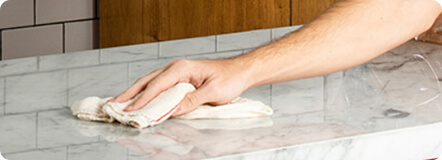
Durability: Quartz is highly durable and resistant to scratches, chips, and stains, thanks to its engineered composition.
Non-Porous: Quartz worktops are non-porous, which means they are less susceptible to absorbing liquids or harbouring bacteria.
Low Maintenance: Quartz requires minimal maintenance, usually just regular cleaning with mild soap and water.
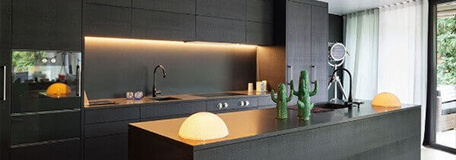
Durability: Granite is also extremely durable, and resistant to heat, scratches, and dents, but it can be more prone to chipping along its edges.
Porous: Granite is a porous material, which means it can absorb liquids and stains if not properly sealed.
Sealing: Regular sealing is necessary to maintain its resistance to staining. Sealants need reapplication every 1-2 years, depending on usage.

Cost Range: Quartz worktops typically fall within a moderate to high price range, depending on the brand, design, and thickness of the slab.
Installation Costs: Installation costs for quartz are generally reasonable, as the material is consistent and easier to work with.
Long-Term Value: The durability and low maintenance of quartz can make it a cost-effective choice in the long run.

Cost Range: Granite worktops vary widely in price, with some exotic or rare patterns being significantly more expensive than others.
Installation Costs: Installation costs for granite can be higher due to the need for precise cutting and sealing.
Value Appreciation: High-quality granite can add value to a home, potentially offering a good return on investment.
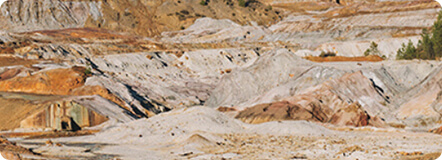
Environmental Concerns: The production of quartz worktops involves the use of resins and other chemicals, which raises some environmental concerns.
Sustainability: Some manufacturers are making efforts to reduce the environmental impact of quartz production by using recycled materials and eco-friendly resins.

Natural Resource: Granite is a natural stone, and its extraction can have an environmental impact in terms of energy consumption and habitat disruption.
Sustainability: Selecting granite from responsible quarries or opting for recycled granite can help mitigate the environmental impact.

Easier Installation: Quartz is typically easier to install due to its consistent thickness and uniformity.
Minimal Seams: The seam visibility is often reduced with quartz, making for a cleaner look in larger installations.
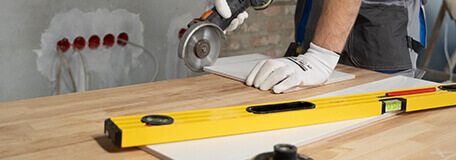
Precision Required: Installing granite requires more precision due to its natural variability in thickness, colour, and pattern.
Seams May Be Noticeable: In larger installations, seams may be more noticeable due to the natural variation in granite slabs.
In the choice between Quartz and Granite worktops, there is no one-size-fits-all answer. Both materials have their unique strengths and weaknesses, and the decision ultimately comes down to your specific preferences and requirements.
Whether you opt for Quartz or Granite worktops, both materials can provide a stunning and functional centrepiece for your kitchen. It’s important to consider your budget, aesthetic preferences, and lifestyle needs when making your decision.
To ensure a successful outcome, work with a reputable supplier like Topsco, who can guide you through the selection process and provide high-quality materials and installation services tailored to your specific requirements.
Check out our next guide where we compare Quartz and Wood Worktops.
Copyright © Topsco
Developed by TyMedia